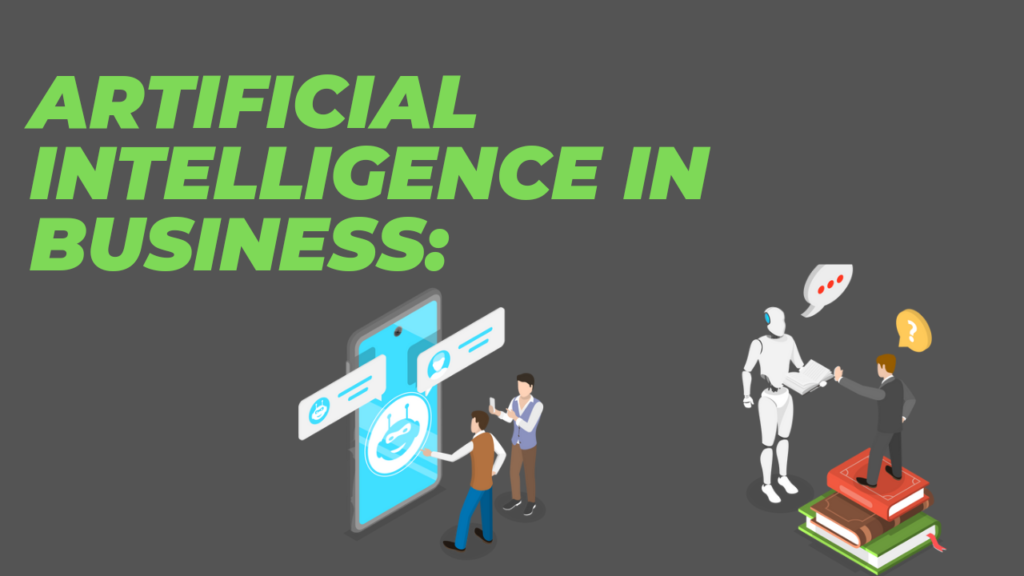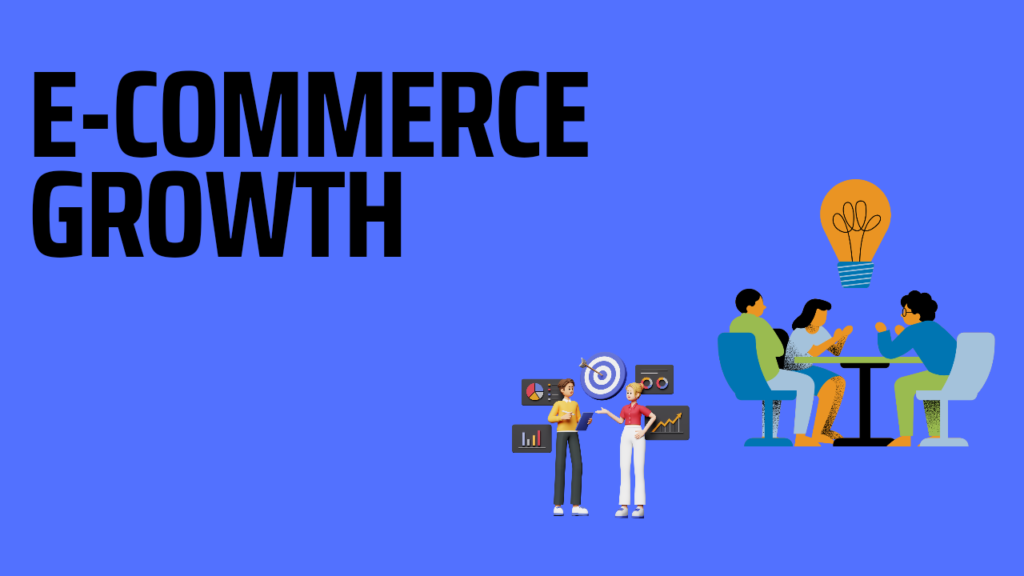ARTIFICIAL INTELLIGENCE IN BUSINESS

Artificial Intelligence (AI) has become a transformative force in the business world, impacting various industries and driving innovation.
1. Automation and Efficiency: AI can automate repetitive tasks and processes, increasing operational efficiency and reducing human error. This can be seen in industries like manufacturing, where robots powered by AI can assemble products faster and with higher precision.
2. Customer Service: Chatbots and virtual assistants powered by AI are being used for customer support, improving response times and providing 24/7 assistance.
3. Data Analysis: AI algorithms can process vast amounts of data quickly, enabling businesses to extract valuable insights. This is particularly valuable in marketing and finance for data-driven decision-making.
4. Predictive Analytics: AI can forecast future trends and outcomes based on historical data, helping businesses make proactive decisions. For instance, AI can predict equipment maintenance needs in manufacturing or customer buying behavior in e-commerce.
5. Personalization: AI-driven recommendation systems are used in e-commerce, streaming services, and social media platforms to provide personalized content and product suggestions, improving user engagement and sales.
6. Supply Chain Optimization: AI helps businesses optimize their supply chains by predicting demand, managing inventory, and improving logistics and delivery routes.
7. Fraud Detection: AI algorithms can detect unusual patterns in financial transactions, helping to prevent fraud in banking and e-commerce.
8. Healthcare: AI is used in diagnosing diseases, drug discovery, and even streamlining administrative tasks in healthcare organizations.
9. Human Resources:AI can assist in the recruitment process by screening resumes, conducting initial interviews, and identifying the best candidates based on predefined criteria.
10. Ethical Considerations: As AI becomes more integrated into business processes, ethical considerations around data privacy, bias, and transparency are crucial. Businesses must navigate these issues responsibly.
AI’s potential in business is vast, but it also presents challenges and considerations, such as ethical and legal concerns, as well as the need for upskilling the workforce to work alongside AI systems.
Is there a specific aspect of AI in business you’d like to explore further, or do you have any specific questions related to this topic?
Certainly!
1. Introduction to AI in Business:
– Define what artificial intelligence is and its relevance to the business world.
– Explain how AI technologies, such as machine learning and natural language processing, work.
2. Applications of AI in Business:
– Explore various industries where AI is making a significant impact, such as healthcare, finance, retail, and manufacturing.
– Provide specific examples of AI applications, like chatbots for customer service, predictive analytics for sales, and AI-driven automation.
3. Benefits of AI in Business:
– Discuss the advantages of integrating AI into business operations, such as improved efficiency, cost reduction, and enhanced decision-making.
4. Challenges and Concerns:
– Address the challenges companies may face when implementing AI, including data privacy, ethical considerations, and the need for skilled AI professionals.
5. AI and Customer Experience:
– Explore how AI-powered chatbots, virtual assistants, and personalized recommendations are enhancing customer experiences.
6. AI in Marketing and Sales:
– Discuss how AI is used for targeted marketing, lead generation, and sales forecasting.
7. AI in Supply Chain and Operations:
– Explain how AI optimizes supply chain logistics, demand forecasting, and inventory management.
8. AI and Data Analytics:
– Highlight the role of AI in processing and analyzing vast amounts of data to extract valuable insights.
9. AI in Finance and Risk Management:
– Describe how AI is utilized in fraud detection, credit scoring, and risk assessment in the financial sector.
10. Future Trends and Developments:
– Discuss emerging trends in AI, such as explainable AI, AI ethics, and the potential for AI to create new business models.
11. Case Studies:
– Provide real-world examples of businesses that have successfully implemented AI strategies and the outcomes they achieved.
12. AI Adoption Strategies:
– Offer guidance on how businesses can start adopting AI, including considerations for small and large enterprises.
Remember to support your points with up-to-date statistics, research findings, and practical examples to make your exploration of AI in business comprehensive and informative.
Certainly!
1. Applications of AI: Discuss various applications of AI in business, such as chatbots for customer service, predictive analytics for decision-making, and natural language processing for data analysis.
2. Data Analytics: Explore how AI is used to analyze vast amounts of data, providing insights that help businesses make informed decisions and improve their operations.
3. Automation: Explain how AI-driven automation streamlines repetitive tasks, reduces human error, and increases efficiency in various industries.
4. Personalization: Highlight how AI is used to create personalized experiences for customers, from personalized product recommendations to tailored marketing campaigns.
5. Customer Service: Discuss the role of AI-powered chatbots and virtual assistants in improving customer service and enhancing the customer experience.
6. Supply Chain Optimization: Explain how AI can be applied to optimize supply chain management, helping businesses manage inventory, reduce costs, and improve delivery times.
7. Ethical Considerations: Address ethical concerns related to AI in business, such as data privacy, bias in algorithms, and job displacement.
8. Competitive Advantage: Explore how AI can give businesses a competitive edge by enabling data-driven decision-making and innovative solutions.
9. Future Trends: Discuss emerging trends in AI, such as the integration of AI with Internet of Things (IoT) devices, the rise of autonomous systems, and the potential for AI to create new business models.
10. Challenges and Adoption: Analyze the challenges businesses face when implementing AI, including the need for skilled professionals, data quality issues, and the cost of AI technology.
11. Success Stories: Share examples of businesses that have successfully implemented AI and the benefits they have achieved.






